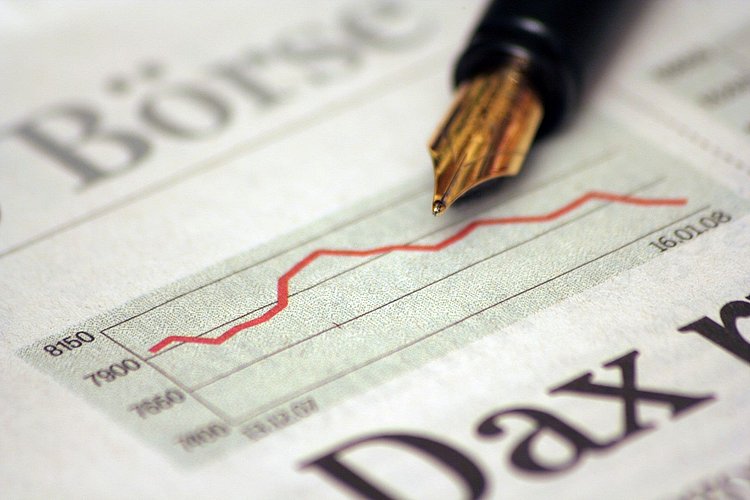Update Capital Markets No. 43
Remuneration of the Board Members of a Listed Company according to ARUG II - Overview and Timetable for the Implementation of the New Regulations
Even before the annual general meeting (“AGM”) is convened in 2021, the supervisory boards of "listed" companies (i.e., companies traded on the “regulated market” segments of stock exchanges) will have to adopt a remuneration system in accordance with ARUG II. This is the result of the staggered implementation of the remuneration-related regulations of the Gesetz zur Umsetzung der zweiten Aktionärsrechterichtlinie [the German Act Implementing the Second Shareholder Rights Directive] of December 12, 2019 ("ARUG II"), which will be relevant for the first time for the 2021 AGM season.
Against the background of the extensive changes and the gradual entry into force of the regulations, an overview and timetable for the implementation of the necessary measures is given below.
1. Determination of remuneration
1.1 Previous legal situation
According to the previous legal situation, a listed company was free to allow the annual general meeting to pass a resolution on the approval of the remuneration system for members of the management board, pursuant to Sec. 120 para. 4 AktG [German Stock Corporation Act] in the version valid until the end of 2019 ('say-on-pay'). Since there was no obligation to pass such a resolution, and the resolution, if passed at all, did not create any rights or obligations, and in particular, did not create any obligations of the supervisory board, this 'say-on-pay' resolution was often criticized as a paper tiger.
In addition, the German Corporate Governance Code in the version valid until March 19, 2020 ('Code of 2017') provided for a recommendation that the supervisory board shall inform the shareholders of both the main features of the remuneration system as well as of the specific remuneration paid using sample tables, for example, by corresponding information in the (group) management report or in the (group) notes.
1.2 Legal situation according to ARUG II
These rules for determining remuneration have now been fundamentally revised by ARUG II
a) Remuneration system
Preparation by the supervisory board
The supervisory board must now prepare and resolve the following documents by the AGM in 2021:
- a remuneration system for the management board, which contains the minimum information stated in Sec. 87a para. 1 (2) AktG (new version); and
- a proposal for the remuneration of the supervisory board (to be regulated either in the articles of association or in a resolution of the general meeting), which meets the content requirements according to Secs. 87a para. 1 (2), 113 para. 3 (3) AktG (new version).
Content requirements for the remuneration system
ARUG II introduces the following content changes to the management board members' remuneration:
- the remuneration structure is to be geared towards a sustainable "and long-term development" of the company. According to the reasons given by the Legal Affairs Committee, social and ecological aspects should also be taken into account when choosing remuneration incentives;
- the remuneration system must now provide for the determination of a maximum remuneration for the board members. The maximum remuneration comprises fixed and variable remuneration components, fringe benefits, and pension benefits. What is also new is that the annual general meeting can now reduce the specified maximum remuneration at the request of shareholders whose shares together amount to 5 % of the share capital or the proportionate amount of EUR 500,000.00;
- the remuneration system must set out all fixed and variable remuneration components and their respective relative share of the remuneration as well as all financial and non-financial performance criteria for the granting of variable remuneration components. Here, disclosure of the performance criteria in an abstract form is sufficient;
- the supervisory board can, however, temporarily deviate from the application of the remuneration system if this is necessary in the interests of the long-term well-being of the company. However, this presupposes that the remuneration system specifies the procedure for deviating and the components of the remuneration system from which deviations can be made ex ante.
It should also be noted that the new version of the German Corporate Governance Code dated December 16, 2019, in force since March 20, 2020 ('Code of 2019') contains some recommendations that affect the structure of the remuneration system and/or the specifically determined fixed remuneration and the reporting (further details follow) of listed companies.
For example, the Code of 2019 contains the following recommendations:
- according to recommendation G.2, the supervisory board should determine the specific target total remuneration for each member of the management board on the basis of the remuneration system, which shall be proportionate to the tasks and performance of the member of the management board and the situation of the company and should not exceed the usual remuneration without special reasons.
- According to recommendation G.6, the variable remuneration resulting from the achievement of long-term objectives should exceed the share arising from short-term objectives.
- According to recommendation G.7, the supervisory board should define the performance criteria for each member of the management board for all variable remuneration components for the coming financial year, which—in addition to operational objectives—should be primarily oriented towards strategic objectives.
Submission to the general meeting and resolution on approval
Pursuant to Sec. 120a para. 1 AktG (new version), the annual general meeting has to resolve the approval of the remuneration system presented by the supervisory board whenever there is a significant change, but at least every four years.
Renewed submission if approval is rejected
The resolution on the remuneration system is not binding on the supervisory board. In the event that the resolution on the remuneration system should be rejected by the general meeting, the supervisory board is therefore free to use the presented, but not approved, system as the basis for the specific determination of the remuneration.
However, in accordance with Sec. 120a para. 3 AktG (new version), the supervisory board must submit a "reviewed" remuneration system for resolution at the latest at the next annual general meeting. The wording of the "review" of the remuneration system makes it clear that the remuneration system does not necessarily have to be changed, but that the same version can be submitted again to the general meeting for resolution.
Publication of the remuneration system
The resolution of the general meeting, including the voting results and the remuneration system, must be published immediately on the company's website and kept publicly accessible, free of charge, for the duration of the validity of the remuneration system, but at least for ten years, even if it is rejected by the general meeting.
Temporal scope
The first resolutions of the general meeting on the remuneration system for the management board and the remuneration of the supervisory board are each to be respectively passed at the first annual general meeting following December 31, 2020, i.e., in practice, in the annual general meeting season of 2021.
For companies with a financial year that deviates from the calendar year, the new regulations on the remuneration system may have to be observed at very short notice if the annual general meeting for the 2019/2020 financial year had not yet taken place as at December 31, 2020. In this case, the new remuneration system for the management board and the proposal for the remuneration of the supervisory board must already be drawn up for the upcoming annual general meeting at which the 2019/2020 annual financial statements will be presented.
b) Specific determination of the remuneration
Following a transitional provision, the initial determination of the management board's remuneration on the basis of a remuneration system submitted to the general meeting for resolution must take place within two months of the decision by the general meeting.
However, there is no obligation for the supervisory board to amend existing employment contracts with management board members. The obligation to determine the remuneration pursuant to a remuneration system presented to the AGM therefore only applies to employment contracts that are newly concluded or extended. The transitional provision is to be understood in such a way that the supervisory board only has to develop a specific remuneration regulation on the basis of the remuneration system within two months after the approval resolution by the AGM if such a remuneration decision is actually pending. However, this also means that the initial application of the remuneration system through specific determinations can be delayed for years if the current contracts with management board members still have a longer term remaining and no decisions by the supervisory board on remuneration (e.g., in the case of the appointment of new management board members) are pending.
As stated, the specific remuneration should be determined not only with a view to the legal requirements but also with a view to the recommendations of the Code of 2019.
2. Reporting on remuneration
2.1 Previous legal situation
Up until now, reporting on board members' remuneration for listed companies has been regulated in a large number of regulations and recommendations, some of which have overlapped:
- both the total remuneration and the individual remuneration of the management board members were to be stated in the (group) notes. The individualized disclosure of the remuneration could, however, be waived by a resolution of the annual general meeting ('opt-out').
- also, in accordance with Sec. 289a para. 2 HGB [German Commercial Code] (old version), a presentation of the "basics of the remuneration system" (remuneration report) was provided for in the (group) management report.
- in addition, the Code of 2017 stipulated content requirements for reporting in a remuneration report, in particular the use of sample tables for the remuneration granted and actually received (so-called granting and inflow tables).
2.2 Legal situation according to ARUG II
Due to the entry into force of the regulations for setting remuneration in 2021, there will be a transition year in practice with regard to the reporting on remuneration in which the old regulations are largely still applicable. This is because the reporting on remuneration is, of course, retrospective, so the new regulations for reporting on remuneration will apply, in practice, for the first time in 2022 for 2021.
In detail, the reporting is as follows:
a) Reporting in the 2021 AGM season
For annual and consolidated financial statements as well as management and group management reports for all financial years beginning before January 1, 2021 (i.e., in practice, in the 2021 AGM season), the old regulations for reporting on remuneration are still generally applicable, i.e.:
- both the total remuneration and the individual remuneration of the members of the executive bodies continue to be stated in the (group) notes.
- the fundamentals of the remuneration system are to be reported in the (Group) management report.
- However, the recommendation of the Code of 2017 on the reporting of remuneration using sample tables is no longer applicable in 2021. This is because the Code of 2019, with a view to the remuneration report introduced in Sec. 162 AktG new version (see below under letter b)), no longer includes this recommendation.
However, since the remuneration report pursuant to Sec. 162 AktG new version will apply for the first time for all fiscal years beginning after December 31, 2020(i.e., from the 2022 AGM season), there may be certain gaps in the reporting in 2021. The Code Commission and practitioners therefore recommend that any information gaps that may arise in 2021 due to the discontinuation of the provisions of the Code of 2017 on the one hand, and the still lacking applicability of the remuneration report pursuant to Sect. 162 AktG (new version) on the other hand, be 'appropriately' closed.
How exactly this gap is to be closed, however, is not discussed further. It is only recommended, for example, that the remuneration report regulations pursuant to Sec. 162 AktG (new version) be already applied voluntarily in 2021.
b) Reporting from the 2022 AGM season
From the 2022 AGM season, the reporting on the remuneration will be structured as follows:
- in the (group) notes, only the total remuneration and no longer the individual remuneration of the members of the executive bodies is to be stated.
- the reporting on the individual compensation must be made in the new compensation report pursuant to Sec. 162 AktG (new version).
- In contrast to the old legal situation, there is no longer an opt-out option for reporting on the individualized publication of remuneration, i.e., the general meeting can no longer waive the individualized publication of remuneration by resolution.
- in the declaration on corporate governance pursuant to Sec. 289 et seq. HGB, a reference to the company's website is to be made via which the compensation report (including the auditor's report), the remuneration system, and the resolutions of the general meeting on the remuneration system and the remuneration report have been published.
In terms of content, the reporting obligation is expanded by the compensation report pursuant to Sec. 162 AktG (new version) as follows:
- individualized disclosure of remuneration must be made not only for current, but also for former members of the management board. However, individualized information on payments provided to former members is limited to a period of ten years after their departure. After this period, the payments provided must still be reported, but only on an anonymous basis.
- the extent to which the specific remuneration is in line with total remuneration and the remuneration policy, including promoting long-term performance and information on the performance criteria, must be stated.
- the annual change in remuneration, the earnings development of the company, and the average remuneration of employees on a full-time equivalent basis over the last five financial years, including an explanation of which group of employees was included, must be stated. However, due to a transitional provision, the period for this comparative analysis does not begin until the first financial year that begins after December 31, 2020, i.e., the comparative analysis will be made for the first time in 2023 for the development of the years 2021/2022.
- the use of so-called 'claw-backs', i.e., the extent to which the option to reclaim variable remuneration components was used, is to be stated.
In contrast to the Code of 2017, the remuneration report pursuant to Section 162 AktG (new version) does not provide for the use of sample tables. However, the Shareholder Rights Directive II (EU 2017/828) on which ARUG II is based provides that the EU Commission should issue non-binding guidelines for the remuneration report. So far, these guidelines are only available in draft form. However, according to this draft, it is already becoming apparent that tables will also be proposed for reporting on remuneration. Even though these guidelines will be non-binding, we recommend to take them into account in the remuneration reporting.
3. Resolution of the general meeting on the approval of the remuneration report
Another new feature is that the general meeting now has to decide annually on the approval of the remuneration report.
However, despite the mandatory resolution, it is still a mere vote that does not establish any rights or obligations of the company's organs. Furthermore, in the case of small and medium-sized companies within the meaning of Sec. 267 para. 1 and 2 HGB, it is sufficient if the remuneration report is merely presented as an agenda item for discussion at the general meeting. A resolution is not required in this case.
The initial resolution on the approval of the remuneration report is to take place before the end of the first annual general meeting, calculated from the beginning of the second financial year following December 31, 2020. In practice, this means that a resolution will be passed for the first time in the 2022 AGM season.
4. Overview
The process outlined above is summarized again in the tables below.
4.1 Schedule for determining remuneration and reporting
Point in time | Measure | Responsibility | |
2021 | Up to the publication of the invitation to the annual general meeting 2021 | Establishment and resolution of the remuneration system for the management board and the supervisory board | Supervisory board |
2021 annual general meeting | Resolution on the submitted remuneration system for the management board and the remuneration for the supervisory board | General meeting | |
Two months after the 2021 annual general meeting | Determination of the management board's remuneration on the basis of the remuneration system However, no requirement to amend existing contracts; determination therefore limited to new contracts or contract extensions
| Supervisory board | |
2022 | Up to the invitation to the annual general meeting 2022 | Reporting on remuneration in the newly introduced remuneration report in accordance with Sec. 162 AktG | Management board and supervisory board |
2022 annual general meeting | Resolution on the approval of the remuneration report for the 2021 financial year | General meeting | |
Possibly also before and during the 2022 annual general meeting | Establishment of a reviewed remuneration system and resolution of the general meeting about such, if the 2021 annual general meeting should have rejected the presented remuneration system | General meeting | |
2023
| Up to the invitation to the annual general meeting 2023 | Reporting on remuneration in the newly introduced remuneration report in accordance with Sec. 162 AktG, with first comparison of the development of the management board's and employees' remuneration in the period 2021/2022
| Management board and supervisory board
|
4.2 Format for reporting on remuneration
2021 | 2022 |
(Group) Notes
Management board and supervisory board
| (Group) Notes
|
(Group) management report
(Sec. 289a para. 2 HGB (old version))
| Compensation report, Sec. 162 AktG (new version)
|
If necessary, voluntary supplementary reporting
| (Group) management report
|









![[Translate to English:] [Translate to English:]](/fileadmin/_processed_/6/b/csm_Besprechung_Laptop_Haende_45d0bbe7d2.jpg)